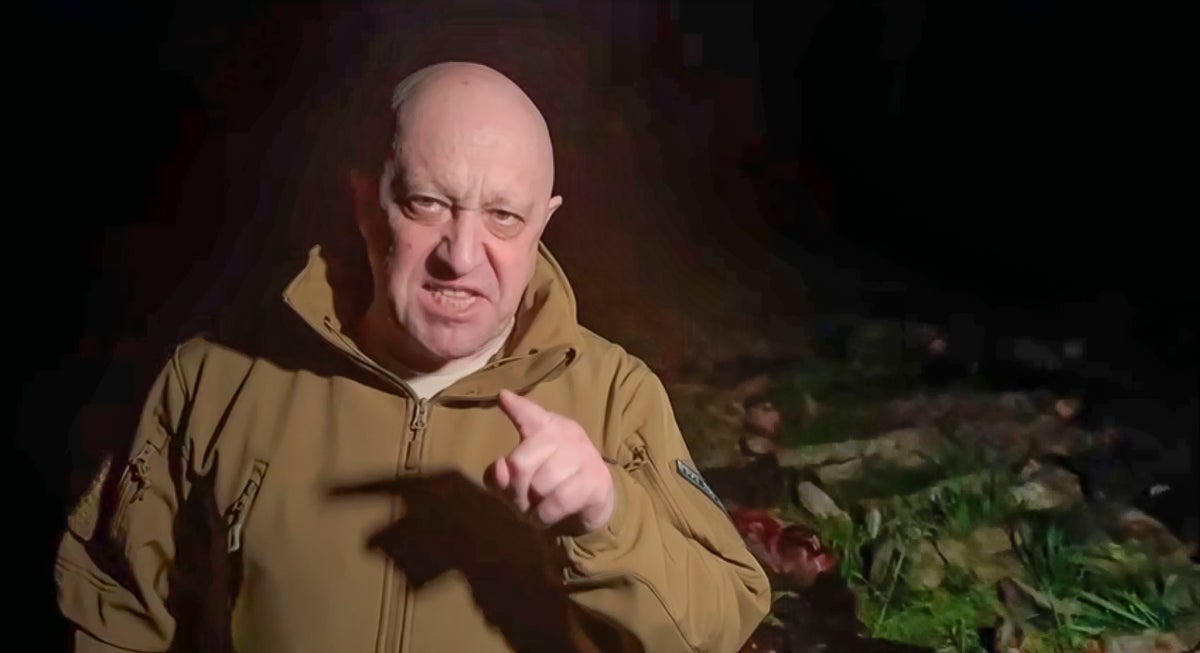
Russia’s Wagner group appeared to climb down on its threat to withdraw from Bakhmut on Sunday after being promised more weapons – as the UN’s nuclear watchdog warned it was “extremely concerned” about the safety of the Zaporizhzhia power plant.
The mercenary group’s chief Yevgeny Prigozhin said on Friday that his fighters, who have spearheaded a months-long assault on the eastern Ukraine city, would pull out after being starved of ammunition and suffering “useless and unjustified” losses.
But in an audio message posted on his Telegram channel on Sunday, he said: “We have been promised as much ammunition and weapons as we need to continue further operations. We have been promised that everything needed to prevent the enemy from cutting us off [from supplies] will be deployed.”
A spokesperson for Russia’s defence ministry did not respond to a request for comment.
Russian officials have repeatedly sought to allay concerns that their forces on the front line have not received adequate supplies.
But Mr Prigozhin’s ultimatum to his own side highlights the pressure Russian forces are under as Ukraine makes its final preparations for a counteroffensive backed by thousands of Western-donated armoured vehicles and freshly trained troops.
The battle for Bakhmut has been the most intense of the conflict, costing thousands of lives on both sides in months of grinding warfare.
Russian forces evacuated residents from a town near the occupied Zaporizhzhia nuclear power plant in Ukraine on Sunday as the head of the United Nations’ nuclear watchdog said he was “extremely concerned” about the safety of the facility.
Ukraine’s military said local Russian passport-holders were being taken to the port city of Berdyansk and the town Prymorsk, both on the coast of the Sea of Azov.
The evacuation, which could not be verified on the ground, comes as Ukraine is expected to launch a much-anticipated counteroffensive to retake Moscow-held territory in the area.
Rafael Grossi, head of the International Atomic Energy Agency (IAEA) expressed deepening concern amid reports Russian forces fired more than 30 shells at Nikopol, a Ukrainian-held town close to the plant.
“The general situation in the area near the Zaporizhzhia nuclear power plant is becoming increasingly unpredictable and potentially dangerous,” he said.
“I’m extremely concerned about the very real nuclear safety and security risks facing the plant.”
Yevgeny Balitsky, the Russian-installed governor of the partially-occupied Zaporizhzhia province, announced on Friday that he had ordered the evacuation of civilians from 18 settlements in the area, including Enerhodar, which is located next to the power plant.
The settlements affected are 30-40 miles from the front line of fighting between Ukraine and Russia.
Ukraine’s Special Operations Forces on Saturday accused Russia of using phosphorous in the besieged city of Bakmut and released a new video showing the tell-tale white fire from such munitions.
International law prohibits the use of white phosphorus or other incendiary weapons – munitions designed to set fire to objects or cause burn injuries – in areas where there could be concentrations of civilians, though it can also be used for illumination or to create smoke screens.
It was not possible to independently verify where the video was shot or when, but chemical weapons expert Hamish de Bretton-Gordon, a former British army colonel, said it was clearly white phosphorous.
“This is being fired directly at Ukraine positions and this would be a war crime,” he said.
“I expect because the Russians have failed to take Bakhmut conventionally, they are now using unconventional tactics to burn the Ukrainian soldiers to death or to get them to flee.”
Russian forces have not commented on the claim, but have rejected previous accusations from Ukraine that they had used phosphorus munitions.
Mr Grossi said operating staff at the nuclear power plant, whose six reactors are currently all in shutdown mode, had not been evacuated as of Saturday but that most live in Enerhodar and the situation has contributed to “increasingly tense, stressful and challenging conditions for personnel and their families”.
He added that IAEA experts at the nuclear site “are continuing to hear shelling on a regular basis”.
“We must act now to prevent the threat of a severe nuclear accident and its associated consequence for the population and the environment,” Mr Grossi said.
“This major nuclear facility must be protected. I will continue to press for a commitment by all sides to achieve this vital objective.”
Reuters and Associated Press contributed to this report







